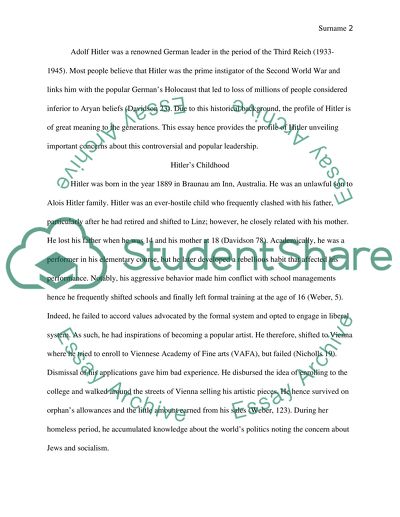Cite this document
(“Profile of Adolf Hitler Essay Example | Topics and Well Written Essays - 1000 words”, n.d.)
Retrieved de https://studentshare.org/history/1453271-a-profile-essay-about-adolf-hitler
Retrieved de https://studentshare.org/history/1453271-a-profile-essay-about-adolf-hitler
(Profile of Adolf Hitler Essay Example | Topics and Well Written Essays - 1000 Words)
https://studentshare.org/history/1453271-a-profile-essay-about-adolf-hitler.
https://studentshare.org/history/1453271-a-profile-essay-about-adolf-hitler.
“Profile of Adolf Hitler Essay Example | Topics and Well Written Essays - 1000 Words”, n.d. https://studentshare.org/history/1453271-a-profile-essay-about-adolf-hitler.


